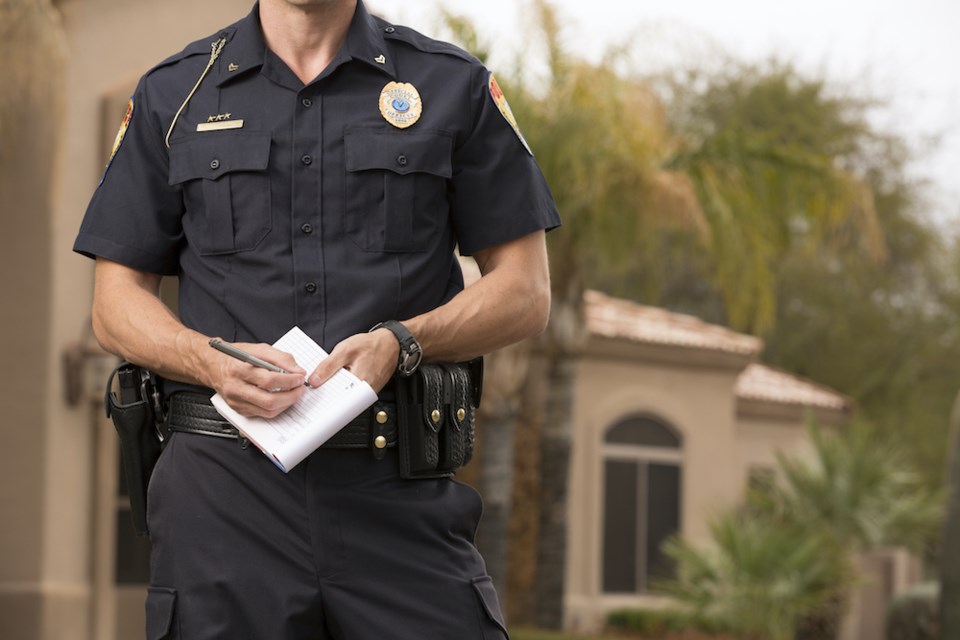British Columbians caught flouting COVID-19 restrictions and deemed guilty will immediately be sent to collections, the Province announced Wednesday.
B.C. is expanding its provincial COVID-19 ticket enforcement and workplace safety measures to "keep residents safe, as well as mitigate the effects on health-care systems, communities and the economy in the ongoing government response to COVID-19," states a release.
“While I’m pleased to report that vaccinations in B.C. have begun, which is a reason to celebrate, we need to continue our efforts in the months ahead to protect our province’s most vulnerable,” said Premier John Horgan. “The provincial health officer’s directions and the solicitor general’s orders are clear. Right now, we all need to mask up in indoor public spaces and not gather with anyone outside our household, and today’s expanded enforcement measures will help us change behaviours and bend the curve of infections back down.”
Since the pandemic began, police agencies in British Columbia have issued 72 violation tickets to individuals who were in contravention of the Federal Quarantine Act, totalling $78,500.
- Between Aug. 21 and Dec. 14, 2020, 290 violation tickets were issued, including:
- 45 $2,300 tickets to owners or organizers contravening the provincial health officer’s (PHO) order on gatherings and events;
- 21 $2,300 violation tickets for contravention of the PHO Food and Liquor Serving Premises Order; and
- 224 $230 tickets issued to individuals who refused to comply with direction from law enforcement.
ICBC to send tickets to collections
Mike Farnworth, Minister of Public Safety and Solicitor General, has asked gaming investigators, conservation officers, community safety unit inspectors, and liquor and cannabis inspectors to actively support police and increase COVID-19 enforcement during their normal course of duties or when in public places.
“Our police departments have been working hard to educate the public and issue violation tickets when necessary,” said Farnworth. “Provincial enforcement officers can already issue violation tickets, but we want to increase the use of the tools available to them. This will put more boots on the ground to actively enforce Emergency Program Act orders and better ensure we can penalize those who insist on putting their own selfishness above public health.”
Farnworth will also direct ICBC--which collects ticket fines on behalf of government--to send deemed-guilty offenders immediately to collections.
Currently, payment reminders may be sent to guilty offenders for up to a year before the overdue account is sent to collections. ICBC will now eliminate this reminder period and instead send unpaid files directly to collections as soon as the initial 30-day payment or dispute period ends, or an offender is found guilty in court.
WorkSafeBC to have more "in-person inspections"
Additionally, the Province has asked WorkSafeBC to enhance its inspection presence in workplaces by reducing reliance on virtual checks and move to more in-person inspections, particularly in sectors where COVID-19 transmission is occurring.
“From the start of the pandemic, WorkSafeBC officers have been doing an admirable job conducting inspections and enforcing compliance with the requirement to have a COVID-19 safety plan,” said Harry Bains, Minister of Labour. “Increasing in-person inspections in sectors of particular concern will help prevent future outbreaks and aligns with our co-ordinated approach to COVID-19 enforcement. Our government is firmly committed to keeping people safe at work.”
The Province notes that you can report non-emergency contraventions of the mask or gathering orders by contacting your local government’s bylaw office.
Local bylaw officers can help followup on concerns and engage police departments and WorkSafeBC as necessary. If you're unable to reach a local bylaw office, contact the local police department’s non-emergency line. Police should be called if someone has become threatening or abusive in response to a request to put on a mask.
If violation tickets do not act as a deterrent, or in cases of particularly egregious contraventions or for repeat offenders, police can recommend charges in relation to the offence. Under this process, courts can impose additional penalties including fines and jail time.



